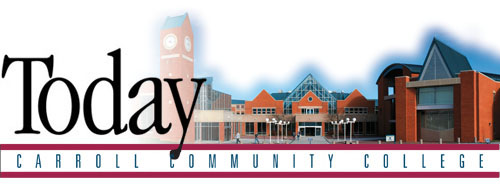|
The transitional education program at Carroll Community College was a finalist for the Bellwether Award in the Instructional Programs and Services category.
The Bellwether Awards annually recognize outstanding, innovative programs and practices that are successfully leading community colleges into the future. For over 20 years, the Community College Futures Assembly has not only been a national policy summit, but also has recognized and promoted cutting-edge, trendsetting programs that other colleges might find worthy of replicating. Since 1995, the Assembly, sponsored by the Institute of Higher Education at the University of Florida, has recognized exemplary programs through the awarding of the coveted Bellwether Award.
Finalists made presentations at the January 2016 Community College Futures Assembly in Orlando, Florida. Following the presentations, one college was selected in each of three categories to win a Bellwether Award. Carroll was one of thirty colleges across the country to present.
Carroll’s re-design of its transitional education program seeks to improve course completion rates and student satisfaction. The program addresses four areas: (1) how to accelerate students’ progression from transitional courses to credit courses; (2) how to make each reading and/or English remedial curriculum engage each student in the learning process; (3) how to eliminate unnecessary placement of students in remedial reading and English classes; and (4) how to teach skills to struggling students.
The re-designed classes provide several key benefits for students, including individualization; flexibility; self-paced learning; credit for what they complete, reducing second and third attempts in the same course; and many other advantages. A summer bridge class has allowed students to remediate and test out of one or more transitional courses in English, reading and/or math.
The results to date look promising. The completion rate for reading has consistently remained above the college benchmark of 70 percent and has ranged from 72 to 83 percent over the past three years. Pre-and post-test scores on the Nelson Denny Reading Comprehension test indicate average increases in reading comprehension of 3.24 grade level equivalents in one semester. Completion rates for English are less dramatic, but growing steadily from 64 percent in 2013-14 to 70 percent in 2014-15. Eighty percent of students enrolled in the bridge class have improved their placement scores upon re-test, testing out of one or more developmental courses for reading, English and/or mathematics.
“Re-design of a curriculum requires buy-in from all involved stakeholders, including administration, faculty and students. Our college is very supportive of this effort,” said Magdeleine Vandal, division chair, Transitional Studies and Academic Services at the college.
“I am extremely proud of Professor Vandal and our transitional studies faculty. Their innovative approach previously won the Exemplary Initiative Award for Curriculum Innovation from the National Council of Instructional Administrators in 2015. And to be included in the pool of 10 finalists for the Community College Futures Assembly Bellwether Award further validates the exceptional nature of our program,” said college President Dr. James D. Ball.
“Recognition such as this is a real testimony to the countless hours of work that went into re-designing this program. It has resulted in greater success for our students and it’s wonderful to see their work recognized in this way,” said Vice President of Academic and Student Affairs Dr. Janet Ohlemacher.
Back to top
|
